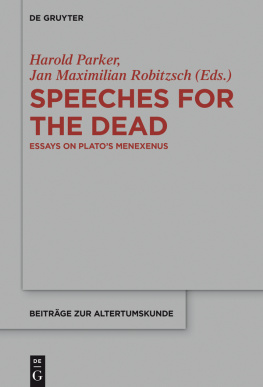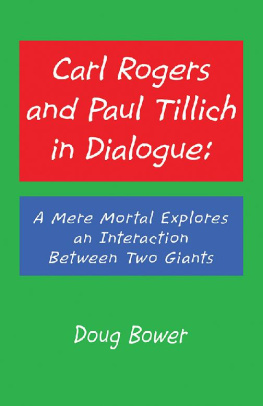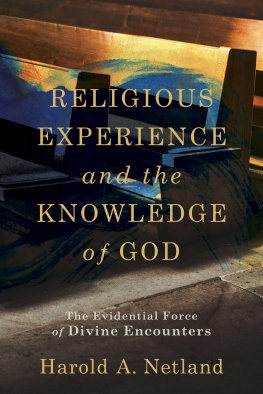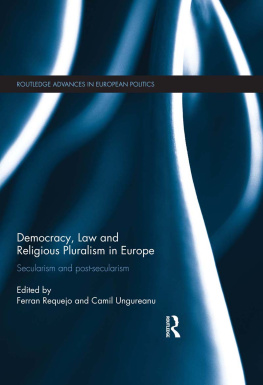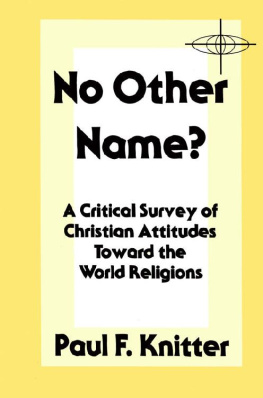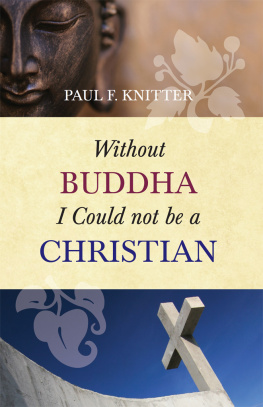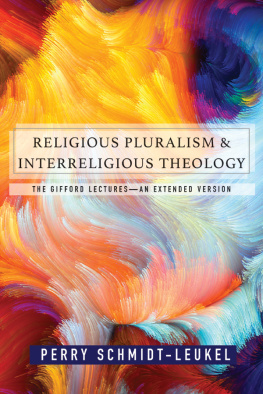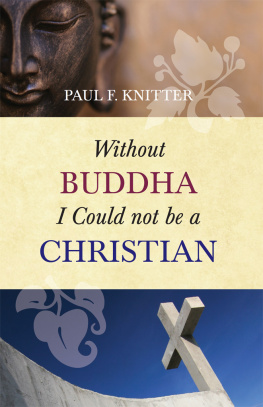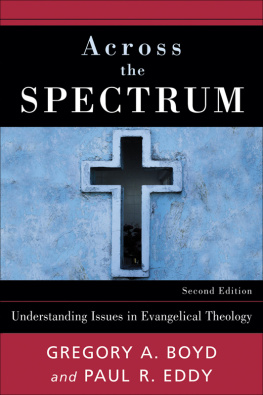Contributors
Paul Copan (Ph.D., Marquette University) is the Pledger Family Chair of Philosophy and Ethics at Palm Beach Atlantic University in West Palm Beach, Florida. He is the author of several books, including Loving Wisdom: Christian Philosophy of Religion (Chalice, 2007) and True for You, but Not for Me (Bethany House, 2007), and he is coauthor of Creation out of Nothing: A Biblical, Philosophical, and Scientific Exploration (Baker Academic, 2004). He has coedited a number of books, including The Rationality of Theism (Routledge, 2003), The Routledge Companion to the Philosophy of Religion (Routledge, 2012), and Philosophy of Religion: Classic and Contemporary Issues (Blackwell, 2007). In addition, he has written many articles in professional philosophical and theological journals. He has served as president of the Evangelical Philosophical Society, and he lives with his wife, Jacqueline, and their six children in West Palm Beach.
Paul Rhodes Eddy (Ph.D., Marquette University) is Professor of Biblical and Theological Studies at Bethel University in St. Paul, Minnesota, and Teaching Pastor at Woodland Hills Church in St. Paul. He has authored, coauthored and coedited several books, including John Hicks Pluralist Philosophy of World Religions (Ashgate, 2002), The Jesus Legend: A Case for the Historical Reliability of the Synoptic Jesus Tradition (Baker, 2007), The Historical Jesus: Five Views (InterVarsity, 2009), Across the Spectrum: Understanding Issues in Evangelical Theology (Baker, 2009), and Justification: Five Views (InterVarsity, 2011). He has also authored a number of articles and essays related to the theology of religions and the historical study of Jesus.
Millard J. Erickson (Ph.D., Northwestern University) has taught at Southwestern Baptist Theological Seminary, Western Seminary (Portland and San Jose), and Truett Seminary, Baylor University. He has authored numerous books, including Christian Theology (Baker, 1986, 1998, 2013), The Word Became Flesh: A Contemporary Incarnational Christology (Baker, 1991), Truth or Consequences: The Promise and Perils of Postmodernism (InterVarsity, 2001), and How Shall They Be Saved? The Destiny of Those Who Do Not Hear of Jesus (Baker, 1996).
R. Douglas Geivett (Ph.D., University of Southern California) is Professor of Philosophy at the Talbot Department of Philosophy, Biola University in La Mirada, California. In addition to contributing numerous articles to various philosophical and theological journals, as well as writing numerous chapters in books, he has written Evil and the Evidence for God and is coeditor of Being Good: Christian Virtues for Everyday Life (Eerdmans, 2011), In Defense of Miracles: A Comprehensive Case for Gods Action in History (InterVarsity, 1997), and Contemporary Perspectives on Religious Epistemology (Oxford University Press, 1993). His interests range over the philosophy of religion, epistemology, and the history of modern philosophy.
S. Mark Heim (Ph.D., Boston CollegeAndover Newton joint doctoral program) is the Samuel Abbot Professor of Christian Theology at Andover Newton Theological School. He has been deeply involved in issues of religious pluralism and Christian ecumenism. He is the author of Is Christ the Only Way? (Judson, 1985), Salvations: Truth and Difference in Religion (Orbis, 1995), The Depth of the Riches: A Trinitarian Theology of Religious Ends (Eerdmans, 2001), and Saved from Sacrifice: A Theology of the Cross (Eerdmans, 2006). He has also edited several volumes, including Faith to Creed: Ecumenical Perspectives on the Affirmation of the Apostolic Faith in the Fourth Century (Eerdmans, 1991) and Grounds for Understanding: Ecumenical Resources for Responses to Religious Pluralism (Eerdmans, 1998). An ordained American Baptist minister, Heim represents his denomination on the Faith and Order Commissions of the National Council and World Council of Churches. He has served on numerous ecumenical commissions and interfaith groups, including the Christian-Muslim relations committee of the National Council of Churches and the planning team for the current Muslim-Baptist dialogue in North America. He has served as a member of the Christian Scholars of Judaism group and has been elected to the American Theological Society. He was awarded a Henry Luce fellowship in 20092010 for a comparative theology project on atonement in Christianity, Buddhism, and Islam.
John Hick (D.Phil., University of Oxford; D.Litt., University of Edinburgh) taught at Cornell University, Princeton Theological Seminary, Cambridge University, and Claremont Graduate University. A seminal thinker in the field of theology of religions, he wrote many books on the subject, including God and the Universe of Faith (Macmillan, 1973), God Has Many Names (Westminster John Knox, 1982), The Myth of Christian Uniqueness, edited with Paul Knitter (Orbis, 1987), A Christian Theology of Religions: The Rainbow of Faiths (SCM/Westminster John Knox, 1995), The Metaphor of God Incarnate, (2nd ed., SCM, 2005), and An Interpretation of Religion: Human Responses to the Transcendent (Palgrave, 2004), for which he received the Grawemeyer Award for new religious thinking.
Paul F. Knitter (L.Th., Pontifical Gregorian University; D.Th., University of Marburg) is the Paul Tillich Professor of Theology, World Religions, and Culture at Union Theological Seminary, New York. He received a Licentiate in theology from the Pontifical Gregorian University in Rome (1966) and a doctorate from the University of Marburg, Germany (1972). His many books include No Other Name? A Critical Survey of Christian Attitudes toward the World Religions (Orbis, 1985), One Earth Many Religions: Multifaith Dialogue and Global Responsibility (Orbis, 1995), Introducing Theologies of Religions (Orbis, 2002), and Without Buddha I Could Not Be a Christian (Oneworld, 2009). From 1986 to 2004, he served on the board of directors for CRISPAZ (Christians for Peace in El Salvador). He is also on the board of trustees for the International, Interreligious Peace Council, formed after the 1993 World Parliament of Religions to promote interreligious peacemaking projects.


